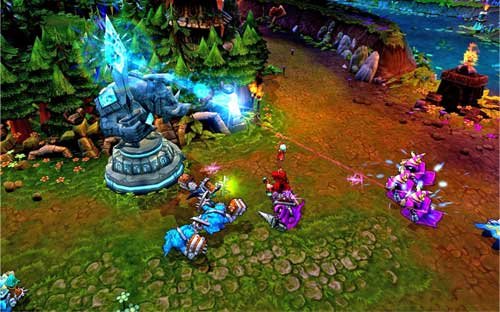
25 years ago, people who enjoyed playing video games most likely dreamed of doing it for a living (most likely as a game tester), but the idea of competitive gaming being the equivalent to mainstream sports seemed impossible in those days. In the modern world, a teenager can win $3,000,000 in a Fortnite tournament thanks to the rise of eSports. As of 2015, “eSports” has become part of the mainstream lexicon.
eSports are now influential to the point that it has been affected by political events (such as the Hong Kong protests), and it’s getting ESPN coverage! Naturally, eSports (as it was with poker, spelling bees, and mixed martial arts) has had its share of criticism regarding whether or not it should be considered a sport. While we’re not exactly here to argue whether or not eSports are an athletic competition, some would wonder if eSports events are just a fad, or are they here to stay?
Spectacle
Long before EVO (a competition for fighting games), League of Legends, Starcraft, and Overwatch, video game competitions still existed. Heck, there was even a movie about old school eSports called The Wizard, where a boy wins a Nintendo competition. As a matter of fact, The Wizard was inspired by the Nintendo Challenge Championship competitions that were initially held in Canada. However, those competitions were more akin to spectacles, as opposed to what we now call eSports.
While players today can win anywhere between six- or seven-figure cash prizes in a Blizzard or Fortnite competition, in Nintendo’s first Worldwide Championship in 1990, first prize winners only got $250! Even before the Nintendo Worldwide Championship, there were other video game competitions dedicated to Space Invaders, Donkey Kong, and other arcade classics. In the early half of the 1990s, there were even game shows dedicated to video games such as Nick Arcade and the second season of Video Power. Of course, these were just for the fun of it and not intended to be something like a traditional sporting event. Since video game competitions were already in practice prior to modern-day eSports, it’s a sign that they’re by no means merely a fad.
South Korea
If we have anyone to thank for building eSports as we see it now, it certainly has to be South Korea due to their aggressive plans in providing quality internet connection. As a result of their net café culture that started at the turn of the millennium, eSports got its modern-day start as gamers there enjoyed competing in Starcraft. As those competitions instantly grew, the South Korean government began its own sanctioning body for such events. In recent years, other nations have started to recognize eSports competitors as legitimate athletes. The US has been issuing visas that are intended for athletes to eSports participants and Turkey’s Ministry of Youth and Sports issue licenses to such players as well. If it wasn’t for South Korea’s instant involvement in recognizing and officially sanctioning eSports, it would have probably taken another 10 or 20 years to get to where it is now. Even 20 years later, South Korea continues to be one of the leading nations in eSports.
Internet
As an extension to South Korea’s contributions, without the internet, eSports wouldn’t be where it is today. The internet has done an effective job of connecting gamers and helping amateur players organize their own personal events so they can hone their skills and still have fun. Not only do PCs and mobile devices have internet access, so do modern consoles, which allows the sport to grow. As long as the world has the internet, where players can connect, eSports are here to stay.
Final Thoughts

As crazy as it sounds, the rise of eSports parallels the rise of mixed martial arts in North America in many unique ways. It’s ironic we bring this up because Chatri Sityodtong, CEO of the ONE FC MMA organization, is also promoting eSports. They both originated as novelty events, and not something in which its participants could pursue as a full-time career. As stated earlier, the cash prize for the first Nintendo World Championship was $250 (which equates to nearly $500 after inflation). How does this relate to MMA? For starters, did you know that former UFC Champion Forrest Griffin only made $100 in his debut fight? These days, athletes in both sports can get wild sponsorship deals and bigger cash prizes now that they have progressively grown and gained mainstream acceptance thanks to proper sanctioning and fan support on the internet.
Like MMA, eSports are still in their infancy and here to stay. Just how other sports have their legends such as Michael Jordan, Muhammed Ali, Babe Ruth, Pele and so on, eSports also has their share of them. In the world of Street Fighter, there’s Daigo Umehara and thanks to him and many others, eSports are going to be around for a long time as they not only impress fans but bring in new ones as well. Considering how fast eSports has found ways to get organized and maintain its presence, it’s here to stay. Even if Overwatch and League of Legends lose their popularity, there will always be new games to take their place and keep eSports fresh.

